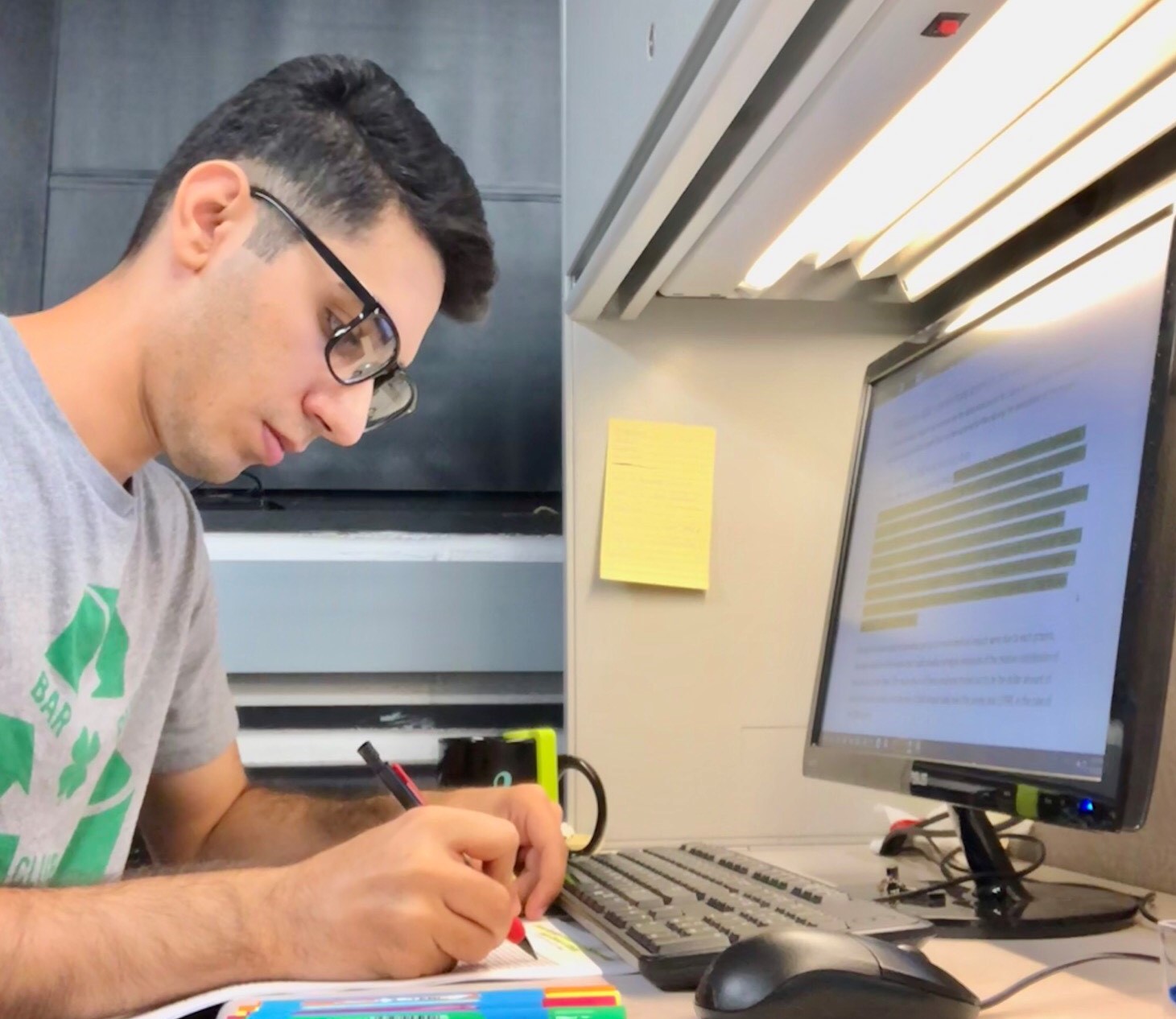Chemical engineering students receive prestigious recognition for sustainability research
 Yinlun Huang, a professor of chemical engineering and materials science at Wayne State University, believes that sustainability must be integrated at every stage of development, even at the molecular level. He cited the development of nanoparticle paint as an example of why this is necessary.
Yinlun Huang, a professor of chemical engineering and materials science at Wayne State University, believes that sustainability must be integrated at every stage of development, even at the molecular level. He cited the development of nanoparticle paint as an example of why this is necessary.
Nanopaint is being tested for its application on vehicles where it will improve scratch resistance, self-healing and self-cleaning capabilities. However, there is concern that these nanoparticles will have a residual effect on the environment and human health.
"If we actually want to address sustainability, we must consider what potential problems - be them environmental or health - may arise. Let's not just solve the problem during the manufacturing process but design the nanopaint at the molecular level to address these issues before they even happen," Huang said.
This is the methodology that drives the students in his research group. Aida Amini-Rankouhi, a chemical engineering Ph.D. student, has been selected to receive the 2018 American Institute of Chemical Engineers Sustainable Engineering Forum's Best Student Paper award.
Amini-Rankouhi's research focuses on recovering mechanical energy in chemical and petrochemical industries through work exchanger networks. Instead of concentrating on a single system in a petrochemical plant, she aims to analyze the deficiencies of every process and modify them for maximum efficiency.
"We are losing a significant amount of energy through the pumps, pressurized systems and compressors used in chemical and petrochemical industries," she said. "The goal is to recover as much energy as possible and be as efficient as possible."
Amini-Rankouhi said that working with Huang has changed her outlook on sustainability.
"Sustainability is something every chemical engineer should care about. Dr. Huang's lab helped me see that I can make a difference in real industries. As a chemical engineer, I can give back to the earth," she said.
Amini-Rankouhi has accepted a research and development position on Honeywell UOP's process modeling team. The company is a pioneer in petrochemical technology development.
Amini-Rankouhi is not the only member of Huang's research team to receive prestigious recognition this year. Seyedparham Pourmirjafari-Firouzabadi, who is currently completing his master's in chemical engineering, is being awarded the 2018 student scholarship from the National Association for Surface Finishing and the American Electroplaters and Surface Finishers Foundation.
His research focuses on the sustainability of metal plating on plastic parts. This process, called electroplating, is useful because it allows lightweight plastic to be used in cars, aircrafts and electronics. For electroplating to occur, however, the plastic's surface must first go through a treatment process.
"This pre-treatment consumes a lot of energy and uses a lot of toxic chemicals, such as chromium, which is very dangerous for the human body and the environment," Pourmirjafari-Firouzabadi said.
One way to remedy this is to ensure that electroplating plants have a low rejection rate. If parts must be re-plated several times due to rejection, more energy is consumed and more toxic chemicals are released.
As he enters his career, Pourmirjafari-Firouzabadi hopes to educate industry professionals on more sustainable ways to manufacture.
"Many people in these industries lack knowledge about the scientific side of these processes," he said. "I have a chance to inform them about how we can make electroplating more sustainable while also increasing profitability."